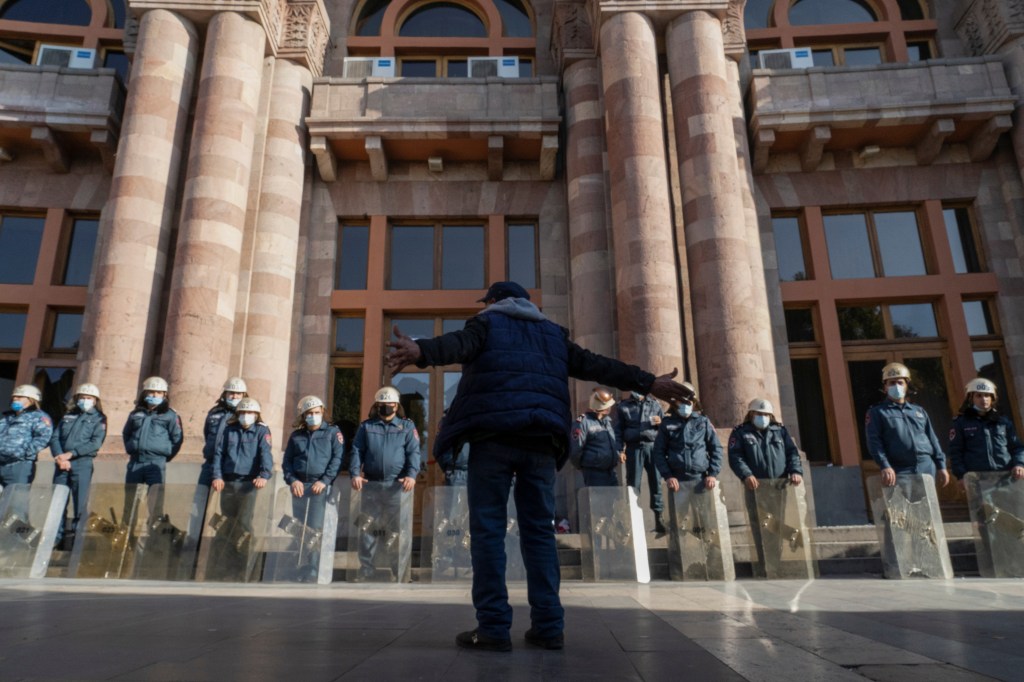Stockholm, May 31, 2022 – Armenian President Vahagn Khachaturyan should refrain from ratifying legal amendments allowing state bodies to revoke journalists’ accreditation, the Committee to Protect Journalists said Tuesday.
On May 25, Armenia’s parliament approved the amendments to the country’s mass media law, according to news reports and an entry on the parliamentary website. Previously, only media outlets could revoke their journalists’ accreditation with state agencies, although amendments last December allowed agencies to deny accreditation.
According to media reports, local press freedom advocates fear that authorities could use the amendments to bar critical journalists from covering parliamentary sessions and other government events. The amendments will take effect when signed by the country’s president, according to Ashot Melikyan, head of the local press advocacy group Committee to Protect Freedom of Expression, who spoke with CPJ by telephone.
“The recent amendments to journalist accreditation regulations are the latest example of Armenia’s departure from international standards in media legislation. Given the country’s highly polarized politics and potential for selective application, these amendments are concerning,” said Gulnoza Said, CPJ’s Europe and Central Asia program coordinator, in New York. “We urge President Khachaturyan to refrain from ratifying the amendments and call on authorities to work with local press freedom organizations to reform recent restrictive media laws.”
Under the new regulations, state bodies will be able to terminate journalists’ accreditation if they violate the body’s accreditation regulations or “rules of procedure” for a second time within a year after receiving a written warning for a previous violation.
The bill’s authors, two deputies with Armenia’s ruling Civil Contract party, have denied that the amendments restrict freedom of the press, stating in parliament that only the accreditation of a specific journalist can be revoked, not media outlets as a whole. They added that outlets would be able to replace any journalist whose accreditation was terminated and argued in parliament and in an explanatory note accompanying the bill that the change was necessitated by “numerous cases” of journalists threatening and insulting parliamentary deputies and “obstructing the activities of both deputies and other journalists.”
Melikyan told CPJ that while a small number of journalists have been guilty of inappropriate behavior, it was wrong to enact laws on this basis, as authorities could use the law as an “instrument of pressure” against the journalistic community. “Today, government organs might object to journalists’ behavior. Later it could be how journalists cover their work,” Melikyan said.
Journalists will be able to appeal decisions on denial and termination of accreditation through the courts, he added but said it remains to be seen how both state organs and the courts will apply the law in practice.
Melikyan described the amendments as the latest “link in the chain of regressive media bills” in Armenia. In July and October 2021, the country recriminalized insult and tripled existing fines for insult and defamation, while parliament banned journalists from entering the legislative chamber without advance permission and limited media interviews to a designated area, as CPJ documented.
CPJ emailed the Parliament of Armenia and the Office of the Prime Minister for comment but did not receive any replies. The Public Relations Department of the President of Armenia replied to CPJ’s emailed request for comment after publication, on June 8, stating that the amendments aim to regulate the work of journalists rather than impose restrictions, that journalists will be warned prior to the termination of their accreditation, and that international organizations have assessed press freedom in Armenia as having improved since the present government came to power in the country’s 2018 revolution.
Editor’s note: The final paragraph has been updated with a reply from the president’s public relations department.
